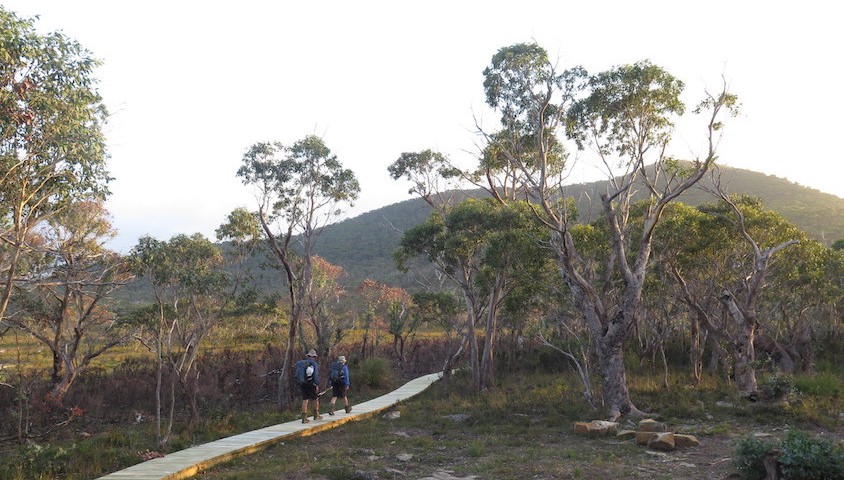Opened to the public late last year, the Three Capes Track offers visitors a visually stunning walking experience in Tasman National Park, which frames the eastern side of Port Arthur.
The construction of the track included kilometres of formed track (either gravel or pine boards) and three huts, providing walkers a safe, short and not-overly taxing alternative to other iconic experiences Tasmania offers, such as the Overland Track.
Now a contract has been awarded to the Tasmanian Walking Company to offer a ‘private walk’ experience on the Three Capes Track, which includes the ability to build two new ‘eco lodges’ in which the company’s guests will stay.
While the plan is in its very early stages, the Three Capes Track itself is already proving popular for tourists, and this new development will no doubt foster higher levels of traffic.
“While our country is known for its raw, natural beauty, it’s important that we continue to proactively promote the breadth, depth and quality of world-class tourism experiences which can be enjoyed on or close to Australia’s spectacular coastline, as will undoubtedly be the case with this new venture and the Three Capes Track walk,” said Tourism Australia’s managing director, John O’Sullivan.
Unlike the more basic experience offered by Tasmania Parks and Wildlife (TPWS), the Tasmanian Walking Company is offering a premium option, replete with professional guides to provide ‘detailed interpretation to their small groups as they make their way past ancient eucalypt forests, moorlands and heath’.
Initially, local bushwalkers raised concerns that the development of the Three Capes Track would not only come at a cost to the local environment, but at a cost of $495 the experience would shut many of them out. Responding to those concerns, TPWS have included a new campsite, dubbed Wughalee Falls, while allowing bushwalkers continued access from Fortescue Bay via the Cape Pillar Track as an alternative to the pricier, hut-based experience.
Heath Garratt, general manager for Tamanian Walking Company, said the operator was currently working through regulatory processes to ensure the lodge developments wouldn’t exceed ecological impact criteria.
“There’s essentially four levels of approval we need to work through,” he said. “The three obvious ones are federal, state and local government approvals, while we also rate our internal processes as a critical part of this work also.
“As part of that, we’ll be conducting another on-site inspection next week, in which our architect will be joined by an independent ecologist, geomorphologist and other experts to not only ensure local flora and fauna won’t be adversely impacted, but that we take into consideration things like visual impact as well.”
While other businesses find these level of bureaucratic hurdles a great burden to doing business, Garratt indicated that is not the case for Tasmanian Walking Company.
“You hear people complaining a lot about ‘green tape’,” he said. “We embrace the fact that it needs to be there. We’d much prefer to be seen to be going through these processes rather than running roughshod over our natural heritage. After all, a pristine, beautiful environment is what our customers expect us to provide.”
A ‘first walk’ account of the Three Capes Track experience appears in Wild 153. Subscribe today.


